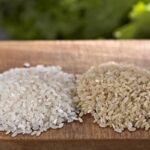What Food Is Good For The Eyes? Discover the best foods to enhance your vision and maintain optimal eye health with FOODS.EDU.VN. Incorporate these delicious and nutritious options into your diet to protect your eyes from age-related macular degeneration, cataracts, and other vision problems. Learn about essential nutrients, eye-friendly recipes, and practical tips to support long-term eye wellness, focusing on antioxidants, omega-3 fatty acids, and a balanced diet for crystal-clear sight.
1. Understanding the Importance of Nutrition for Eye Health
Maintaining excellent vision involves more than just regular eye exams; nutrition plays a crucial role. The phrase “you are what you eat” rings especially true regarding eye health. A balanced diet rich in specific vitamins, minerals, and antioxidants can significantly reduce the risk of developing age-related eye conditions.
1.1. Why Focus on What Food Is Good for the Eyes?
Focusing on what food is good for the eyes is essential because the eyes, like other organs, require proper nutrients to function optimally. According to a study by the National Eye Institute, specific nutrients like lutein, zeaxanthin, and vitamins C and E can lower the risk of age-related macular degeneration (AMD) and cataracts. Incorporating these nutrients into your diet can safeguard your vision and improve your overall quality of life.
1.2. The Link Between Diet and Vision
The link between diet and vision is firmly established through numerous research studies. For instance, diets high in processed foods, saturated fats, and sugars can increase the risk of developing eye diseases. Conversely, diets rich in fruits, vegetables, and omega-3 fatty acids support eye health. A study published in the “American Journal of Clinical Nutrition” found that individuals with high intakes of lutein and zeaxanthin had a reduced risk of developing advanced AMD. Therefore, making conscious dietary choices is a proactive step toward preserving your eyesight.
2. Top 10 Foods for Enhanced Eye Health
To enhance your eye health, incorporating specific foods rich in essential nutrients is vital. Here are ten of the best foods you can easily include in your diet to support and improve your vision.
2.1. Fatty Fish: Omega-3 Powerhouse
Fatty fish such as salmon, tuna, and mackerel are packed with omega-3 fatty acids, crucial for eye health. These fatty acids can help prevent dry eyes and reduce the risk of AMD.
2.1.1. Benefits of Omega-3s for Vision
Omega-3 fatty acids offer several benefits for vision. They help maintain the structural integrity of cell membranes in the eyes, reduce inflammation, and improve overall eye function. A study in the “Archives of Ophthalmology” found that women who consumed higher amounts of omega-3 fatty acids had a lower risk of developing dry eye syndrome.
2.1.2. Incorporating Fatty Fish into Your Diet
Incorporating fatty fish into your diet is simple and delicious. Aim to eat at least two servings of fatty fish per week. Try grilling salmon, baking tuna steaks, or adding mackerel to salads and sandwiches. These methods ensure you receive the maximum benefit from these omega-3-rich sources.
2.2. Leafy Green Vegetables: Lutein and Zeaxanthin Boosters
Leafy green vegetables like spinach, kale, and collard greens are excellent sources of lutein and zeaxanthin, powerful antioxidants that protect the eyes from damage caused by blue light and free radicals.
2.2.1. How Lutein and Zeaxanthin Protect Your Eyes
Lutein and zeaxanthin act as natural sunblock for your eyes. They absorb harmful blue light that can damage the retina, reducing the risk of AMD and cataracts. These antioxidants also help improve visual acuity and contrast sensitivity.
2.2.2. Creative Ways to Eat More Greens
Eating more leafy greens can be both easy and enjoyable. Add spinach to smoothies, sauté kale with garlic, or make a colorful salad with mixed greens. These vegetables are versatile and can be incorporated into various dishes, ensuring you get your daily dose of eye-protecting nutrients.
2.3. Carrots: Beta-Carotene for Night Vision
Carrots are famous for their high beta-carotene content, a form of vitamin A that is essential for good vision, especially night vision. Beta-carotene helps the eyes adjust to changes in light, improving vision in low-light conditions.
2.3.1. The Role of Vitamin A in Eye Health
Vitamin A plays a crucial role in maintaining the health of the cornea, the outer covering of the eye. It also helps prevent dry eyes and night blindness. A deficiency in vitamin A can lead to serious eye problems, highlighting the importance of including vitamin A-rich foods like carrots in your diet.
2.3.2. Delicious Carrot Recipes
There are countless ways to enjoy carrots. Eat them raw as a snack, add them to salads, roast them with herbs, or make a creamy carrot soup. These recipes not only taste great but also provide a healthy dose of beta-carotene to support your vision.
2.4. Eggs: Zinc and Antioxidant Powerhouse
Eggs are a nutritional powerhouse, offering a combination of zinc, lutein, and zeaxanthin. These nutrients protect the retina from damage and help prevent AMD.
2.4.1. The Benefits of Zinc for Eye Health
Zinc helps transport vitamin A from the liver to the retina, where it is used to produce melanin, a pigment that protects the eyes from UV light. Zinc also supports the overall health of the retina and helps maintain clear vision.
2.4.2. Egg-cellent Ways to Include Eggs in Your Meals
Eggs are incredibly versatile and can be included in various meals. Enjoy them scrambled, fried, boiled, or as part of omelets and frittatas. Adding eggs to your diet ensures you benefit from their zinc, lutein, and zeaxanthin content.
2.5. Citrus Fruits: Vitamin C for Eye Protection
Citrus fruits like oranges, lemons, and grapefruits are rich in vitamin C, a powerful antioxidant that protects the eyes from oxidative stress and reduces the risk of cataracts.
2.5.1. How Vitamin C Supports Eye Health
Vitamin C helps protect the eyes from damage caused by free radicals, unstable molecules that can harm cells and tissues. It also supports the health of blood vessels in the eyes and helps prevent age-related eye diseases.
2.5.2. Refreshing Citrus Recipes
Enjoy citrus fruits in various ways. Drink fresh orange juice, add lemon to your water, or make a refreshing grapefruit salad. These options provide a delicious and effective way to boost your vitamin C intake and support your eye health.
2.6. Nuts and Seeds: Vitamin E and Omega-3 Sources
Nuts and seeds such as almonds, walnuts, chia seeds, and flaxseeds are excellent sources of vitamin E and omega-3 fatty acids. These nutrients help protect the eyes from oxidative damage and reduce inflammation.
2.6.1. The Power of Vitamin E for Vision
Vitamin E is a potent antioxidant that helps protect the eyes from damage caused by free radicals. It also supports the health of the retina and helps prevent age-related eye diseases.
2.6.2. Snack Smart with Nuts and Seeds
Nuts and seeds make a healthy and convenient snack. Eat a handful of almonds, add chia seeds to your yogurt, or sprinkle flaxseeds on your salads. These simple additions to your diet can significantly improve your eye health.
2.7. Bell Peppers: Vitamin C and Antioxidant Rich
Bell peppers, especially the red and yellow varieties, are packed with vitamin C and other antioxidants that benefit eye health. They help protect the eyes from oxidative stress and reduce the risk of cataracts.
2.7.1. Antioxidant Benefits of Bell Peppers
Bell peppers contain high levels of vitamin C, beta-carotene, and other antioxidants that protect the eyes from damage caused by free radicals. These nutrients support the health of the retina and help prevent age-related eye diseases.
2.7.2. Creative Ways to Cook with Bell Peppers
Bell peppers can be used in a variety of dishes. Add them to stir-fries, salads, omelets, or roast them with other vegetables. These versatile vegetables not only add flavor and color to your meals but also provide essential nutrients for eye health.
2.8. Legumes: Zinc and Nutrient Dense
Legumes such as beans, lentils, and peas are excellent sources of zinc, which helps transport vitamin A to the retina. They also provide other essential nutrients that support overall eye health.
2.8.1. How Zinc Aids in Vision
Zinc plays a crucial role in transporting vitamin A from the liver to the retina, where it is used to produce melanin, a pigment that protects the eyes from UV light. Zinc also supports the overall health of the retina and helps maintain clear vision.
2.8.2. Delicious Legume-Based Meals
Legumes can be used in a variety of delicious and nutritious meals. Make lentil soup, bean chili, or add chickpeas to your salads. These options provide a healthy dose of zinc and other essential nutrients that support your eye health.
2.9. Broccoli and Brussels Sprouts: Vitamin A, C, and E Combo
Broccoli and Brussels sprouts are packed with a combination of vitamins A, C, and E, which help protect the eyes from free radicals and support overall eye health.
2.9.1. The Synergistic Effect of Vitamins A, C, and E
Vitamins A, C, and E work together to protect the eyes from oxidative stress and reduce the risk of age-related eye diseases. These vitamins support the health of the retina, cornea, and other vital eye structures.
2.9.2. Tasty Ways to Cook Broccoli and Brussels Sprouts
Broccoli and Brussels sprouts can be cooked in a variety of ways. Steam them, roast them with herbs, or add them to stir-fries. These versatile vegetables provide a healthy dose of vitamins A, C, and E, supporting your eye health.
2.10. Water: Hydration for Eye Comfort
Staying hydrated is essential for overall health, including eye health. Water helps keep the eyes lubricated and prevents dry eye symptoms.
2.10.1. The Importance of Hydration for Eye Lubrication
Adequate hydration helps maintain the tear film, which lubricates and protects the surface of the eyes. Dehydration can lead to dry eyes, causing discomfort, blurred vision, and other eye problems.
2.10.2. Tips for Staying Hydrated
Drink plenty of water throughout the day. Carry a water bottle with you and refill it regularly. You can also increase your fluid intake by drinking herbal teas, and eating water-rich fruits and vegetables.
3. Key Nutritional Elements for Eye Health
To maintain optimal eye health, focusing on specific nutritional elements is essential. These elements provide the building blocks and protective compounds necessary for clear vision and long-term eye wellness.
3.1. Essential Vitamins and Minerals
Certain vitamins and minerals play a critical role in eye health. Ensuring you get enough of these nutrients can significantly reduce the risk of developing eye diseases.
| Nutrient | Recommended Daily Intake | Benefits for Eye Health | Food Sources |
|---|---|---|---|
| Vitamin C | 500 mg | Protects against oxidative stress, reduces the risk of cataracts | Citrus fruits, bell peppers, strawberries, broccoli |
| Vitamin E | 400 IU | Protects against free radicals, supports retinal health | Nuts, seeds, vegetable oils, spinach |
| Lutein | 10 mg | Filters harmful blue light, reduces the risk of AMD | Leafy green vegetables (spinach, kale), eggs |
| Zeaxanthin | 2 mg | Works with lutein to protect the eyes from blue light and oxidative damage | Leafy green vegetables (spinach, kale), eggs |
| Zinc Oxide | 80 mg | Helps transport vitamin A to the retina, protects against macular degeneration | Oysters, beef, pork, chicken, legumes |
| Copper Oxide | 2 mg | Helps the body absorb zinc, prevents zinc-induced copper deficiency | Nuts, seeds, leafy green vegetables |
| Omega-3 Fatty Acids | Varies | Reduces inflammation, prevents dry eyes, supports retinal health | Fatty fish (salmon, tuna, mackerel), flaxseeds, chia seeds |
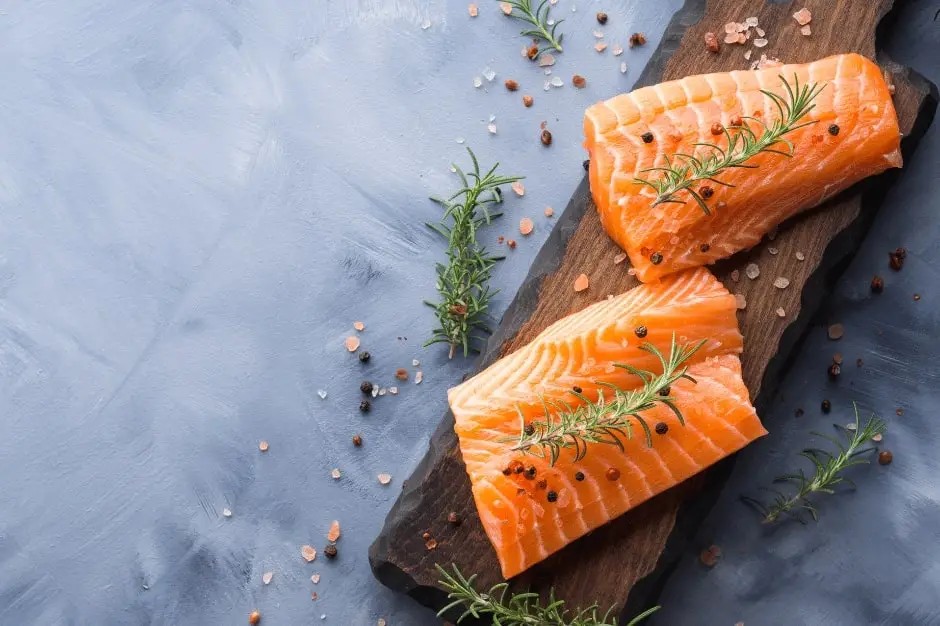
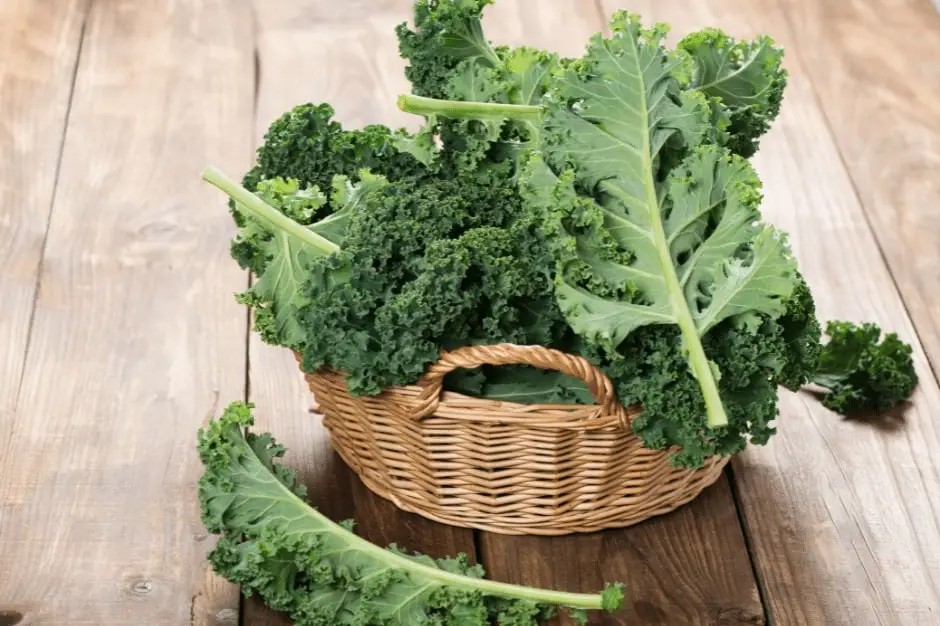
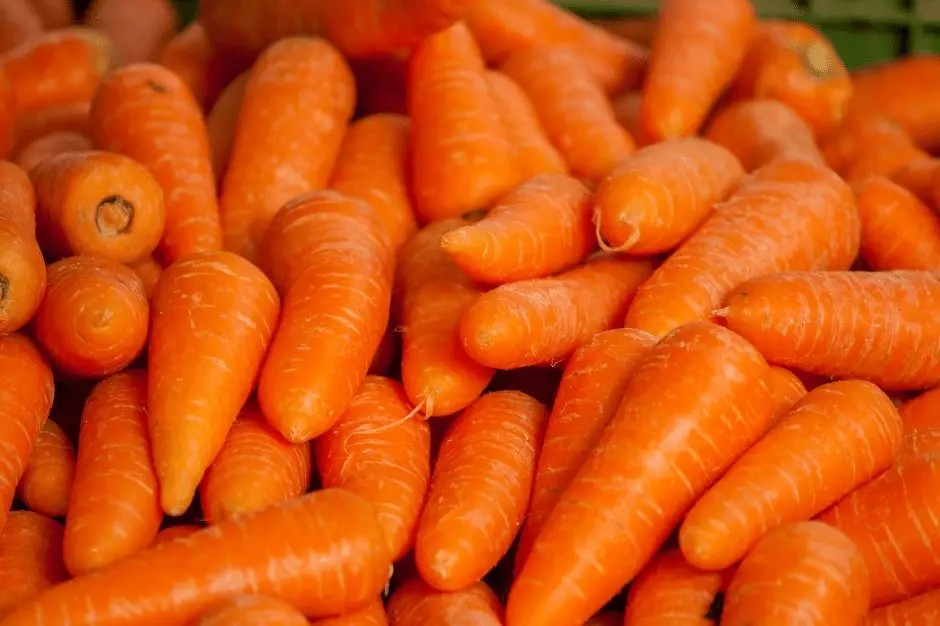
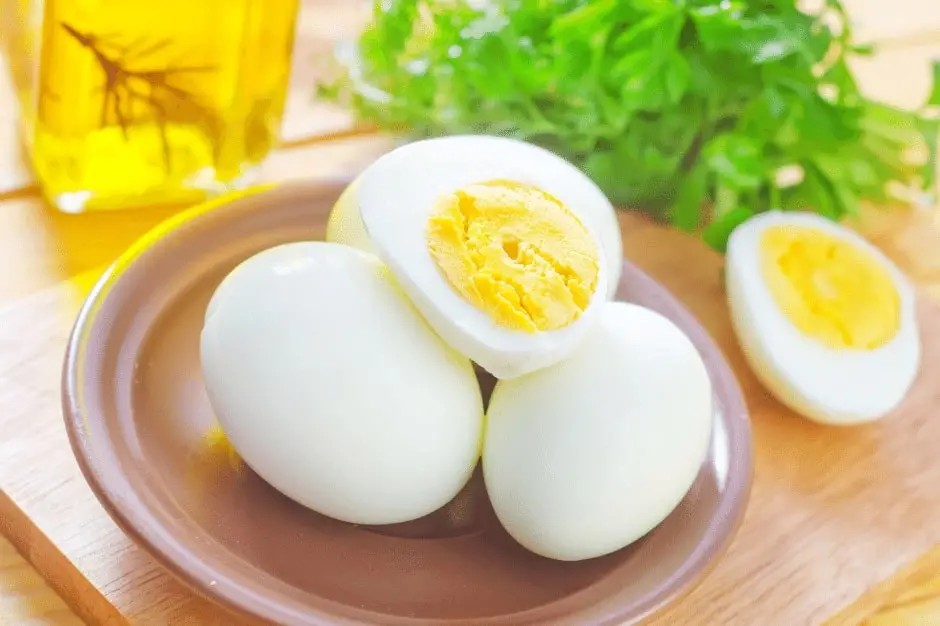
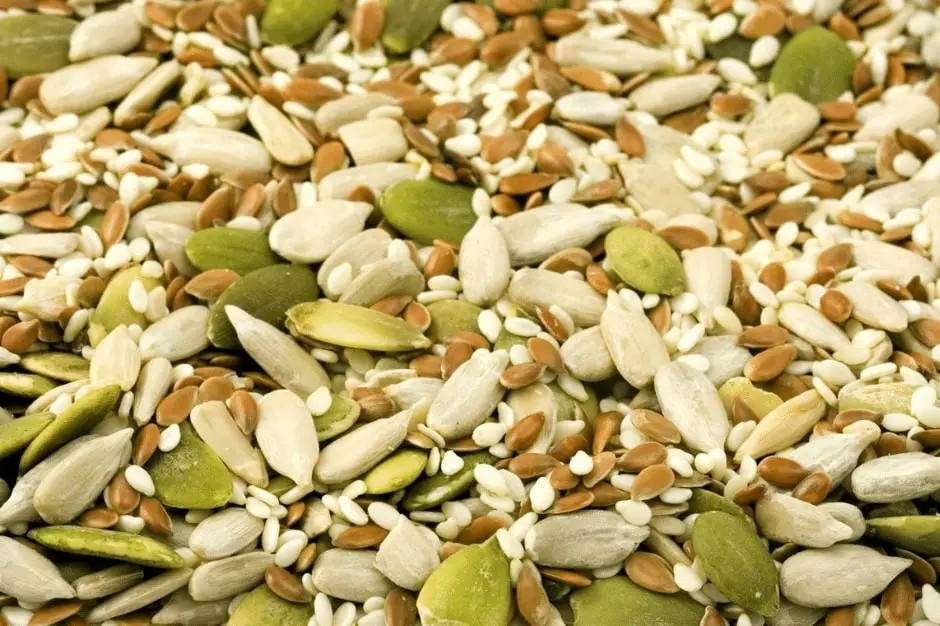
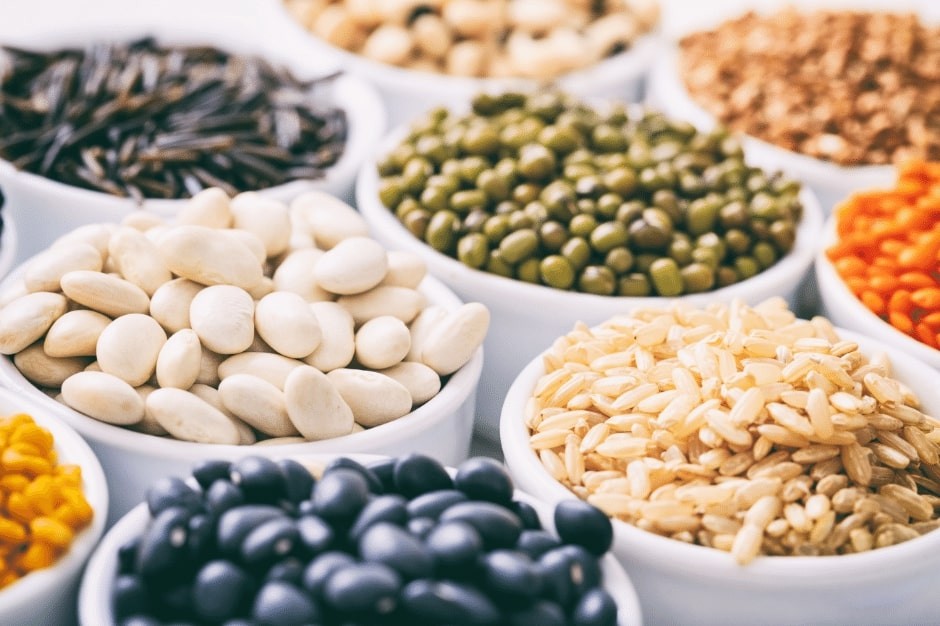
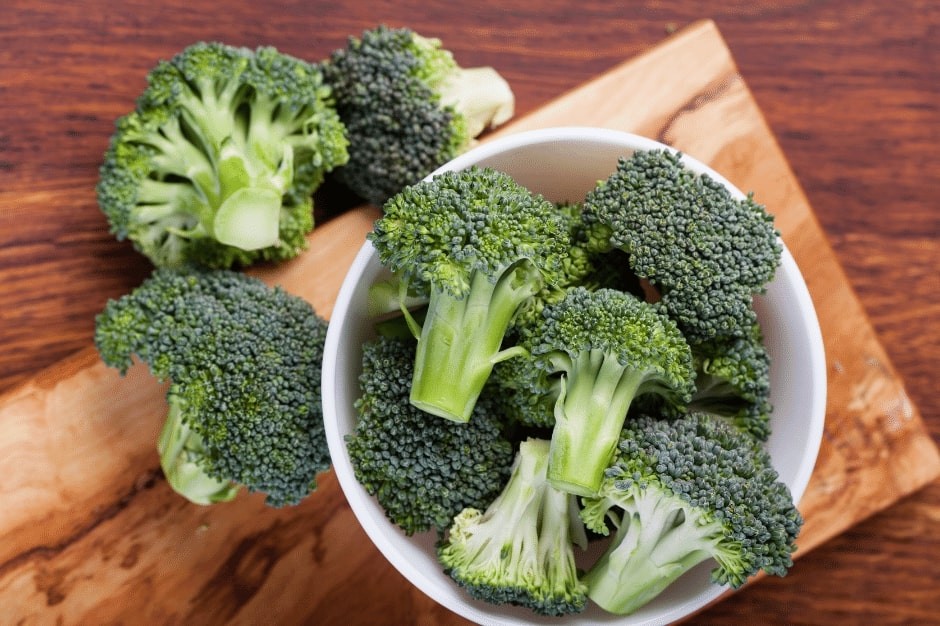
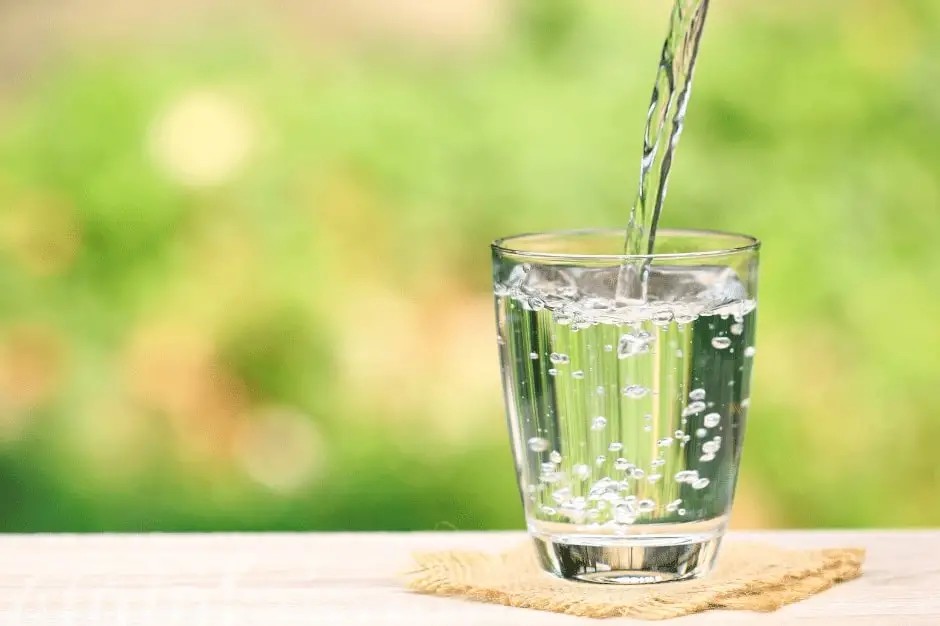
3.2. Antioxidants and Their Protective Role
Antioxidants play a crucial role in protecting the eyes from damage caused by free radicals. These compounds neutralize harmful molecules, reducing the risk of age-related eye diseases.
3.2.1. Lutein and Zeaxanthin
Lutein and zeaxanthin are powerful antioxidants that accumulate in the retina and lens of the eye. They filter harmful blue light and protect against oxidative damage, reducing the risk of AMD and cataracts.
3.2.2. Vitamin C and Vitamin E
Vitamin C and vitamin E are potent antioxidants that protect the eyes from free radicals. They support the health of blood vessels in the eyes and help prevent age-related eye diseases.
3.3. Incorporating These Elements into Your Diet
Incorporating these essential nutrients into your diet is crucial for maintaining optimal eye health. Focus on eating a variety of nutrient-rich foods to ensure you get the vitamins, minerals, and antioxidants your eyes need.
4. Weekly Diet Example for Optimal Eye Health
Creating a balanced weekly diet that includes foods rich in essential nutrients is a proactive step towards maintaining optimal eye health. Here is an example of a weekly food plan designed to cover all bases for eye health.
4.1. Sample Meal Plan
This meal plan includes a variety of foods rich in vitamins, minerals, and antioxidants known to support eye health.
| Day | Breakfast | Lunch | Dinner | Snack |
|---|---|---|---|---|
| Monday | Scrambled eggs with spinach and red peppers, whole grain toast | Grilled chicken salad with mixed greens, carrots, and sunflower seeds | Baked salmon with steamed broccoli and quinoa | Hummus with carrot sticks |
| Tuesday | Greek yogurt with chia seeds, berries, and a drizzle of honey | Quinoa salad with black beans, corn, red peppers, and cilantro | Stir-fried tofu with broccoli, bell peppers, and brown rice | Sliced cucumber and red peppers with tzatziki |
| Wednesday | Vegetable omelette with spinach, red peppers, and onions | Lentil soup with a side of mixed green salad | Grilled chicken breast with roasted carrots and a side of mixed greens | Apple slices with almond butter |
| Thursday | Smoothie with spinach, banana, chia seeds, and almond milk | Chickpea and vegetable stir-fry with carrots and broccoli over brown rice | Baked cod with steamed green beans and mashed sweet potatoes | Handful of mixed nuts and seeds |
| Friday | Whole grain toast with avocado, poached eggs, and a side of cherry tomatoes | Turkey and vegetable wrap with spinach, carrots, and red peppers | Beef and bean chili with a side of cornbread | Greek yogurt with honey and chia seeds |
| Saturday | Spinach and mushroom frittata | Mixed bean salad with kidney beans, black beans, red peppers, and a lime vinaigrette | Grilled shrimp with quinoa and a side of steamed broccoli | Baby carrots with hummus |
| Sunday | Oatmeal topped with chia seeds, banana slices, and a dollop of almond butter | Grilled chicken Caesar salad with dark leafy greens and a sprinkle of sunflower seeds | Baked tilapia with a side of roasted Brussels sprouts and sweet potato wedges | Sliced bell peppers with guacamole |
4.2. Recipe Ideas for Eye Health
Incorporating eye-friendly recipes into your diet can make maintaining optimal eye health both easy and enjoyable. Here are some ideas to get you started.
4.2.1. Spinach and Red Pepper Scrambled Eggs
This recipe is packed with lutein, zeaxanthin, and vitamin C, all essential for eye health.
-
Ingredients:
- 2 eggs
- 1 cup spinach
- 1/4 cup red bell pepper, diced
- Salt and pepper to taste
-
Instructions:
- Whisk eggs in a bowl with salt and pepper.
- Sauté spinach and red pepper in a pan until tender.
- Pour eggs into the pan and scramble until cooked through.
4.2.2. Baked Salmon with Steamed Broccoli
This dish provides a healthy dose of omega-3 fatty acids and vitamins A, C, and E.
-
Ingredients:
- 4 oz salmon fillet
- 1 cup broccoli florets
- Olive oil
- Lemon slices
- Salt and pepper to taste
-
Instructions:
- Preheat oven to 375°F (190°C).
- Place salmon on a baking sheet, drizzle with olive oil, and season with salt and pepper.
- Bake for 12-15 minutes, or until cooked through.
- Steam broccoli until tender.
- Serve salmon with steamed broccoli and lemon slices.
4.3. Adjusting the Diet Plan to Your Needs
This meal plan is a starting point. Feel free to adjust it to fit your dietary needs and preferences. If you are vegetarian or vegan, replace meat and fish with plant-based protein sources like tofu, lentils, and beans.
5. Lifestyle Tips for Improving Eye Health
In addition to diet, several lifestyle factors can significantly impact your eye health. Incorporating these tips into your daily routine can help protect your vision and prevent age-related eye diseases.
5.1. Protecting Your Eyes from the Sun
Excessive sun exposure can damage your eyes and increase the risk of cataracts and AMD. Wearing sunglasses that block 100% of UVA and UVB rays is essential for protecting your eyes from the sun’s harmful effects.
5.2. Regular Eye Exams
Regular eye exams are crucial for detecting eye problems early, when they are most treatable. Schedule an eye exam at least once a year, or more frequently if you have a family history of eye disease or other risk factors.
5.3. Reducing Eye Strain
Prolonged screen time can cause eye strain, leading to discomfort, blurred vision, and headaches. Follow the 20-20-20 rule: every 20 minutes, look at something 20 feet away for 20 seconds. This helps relax your eye muscles and reduce eye strain.
5.4. Proper Contact Lens Care
If you wear contact lenses, proper care is essential for preventing eye infections and other complications. Wash your hands before handling contact lenses, clean them regularly with a recommended solution, and avoid wearing them longer than prescribed.
5.5. Staying Active and Maintaining a Healthy Weight
Regular physical activity and maintaining a healthy weight can benefit your overall health, including your eye health. Studies have shown that obesity and a sedentary lifestyle can increase the risk of developing eye diseases like glaucoma and AMD.
6. Addressing Common Eye Health Concerns
Understanding and addressing common eye health concerns can help you take proactive steps towards maintaining clear vision and preventing age-related eye diseases.
6.1. Dry Eye Syndrome
Dry eye syndrome is a common condition that occurs when your eyes don’t produce enough tears or the tears are of poor quality. Symptoms include dryness, burning, itching, and blurred vision.
6.1.1. Causes and Symptoms
Dry eye syndrome can be caused by various factors, including aging, hormonal changes, environmental conditions, and certain medications. Symptoms can range from mild discomfort to severe pain and vision problems.
6.1.2. Dietary and Lifestyle Solutions
Dietary and lifestyle changes can help alleviate dry eye symptoms. Incorporating omega-3 fatty acids into your diet, staying hydrated, and avoiding prolonged screen time can all help improve tear production and reduce discomfort.
6.2. Age-Related Macular Degeneration (AMD)
AMD is a leading cause of vision loss in older adults. It affects the macula, the central part of the retina, leading to blurred or distorted vision.
6.2.1. Risk Factors and Prevention
Risk factors for AMD include age, genetics, smoking, and a diet high in saturated fats and processed foods. Prevention strategies include eating a healthy diet rich in antioxidants, lutein, and zeaxanthin, quitting smoking, and protecting your eyes from the sun.
6.2.2. The Role of Nutrition in Managing AMD
Nutrition plays a crucial role in managing AMD. Studies have shown that a diet rich in lutein, zeaxanthin, vitamins C and E, and zinc can slow the progression of AMD and reduce the risk of vision loss.
6.3. Cataracts
Cataracts are a clouding of the lens of the eye, leading to blurred vision, glare, and difficulty seeing at night.
6.3.1. Causes and Symptoms
Cataracts are typically caused by aging, but can also be caused by genetics, diabetes, and exposure to UV light. Symptoms include cloudy or blurred vision, sensitivity to light, and difficulty seeing colors.
6.3.2. How Diet Can Help Prevent Cataracts
A healthy diet rich in antioxidants can help prevent cataracts. Studies have shown that people who consume high amounts of vitamin C and vitamin E have a lower risk of developing cataracts.
7. Expert Insights and Research
Staying informed about the latest research and expert insights can help you make informed decisions about your eye health.
7.1. Studies on Nutrition and Eye Health
Numerous studies have explored the link between nutrition and eye health. These studies provide valuable insights into the role of specific nutrients in preventing and managing eye diseases.
7.1.1. The AREDS and AREDS2 Studies
The Age-Related Eye Disease Studies (AREDS and AREDS2) are landmark studies that have provided valuable insights into the role of nutrition in managing AMD. These studies found that a specific combination of vitamins and minerals can slow the progression of AMD and reduce the risk of vision loss.
7.1.2. Research on Lutein and Zeaxanthin
Research has consistently shown that lutein and zeaxanthin play a crucial role in protecting the eyes from damage caused by blue light and oxidative stress. Studies have found that people who consume high amounts of lutein and zeaxanthin have a lower risk of developing AMD and cataracts.
7.2. Advice from Eye Care Professionals
Eye care professionals can provide valuable advice on maintaining optimal eye health. They can assess your individual needs and recommend specific dietary and lifestyle changes to protect your vision.
7.3. Debunking Common Myths About Eye Health
Many myths surround eye health. Getting accurate information can help you make informed decisions about your vision care.
7.3.1. Myth: Eating Carrots Will Give You Super Vision
While carrots are good for your eyes, they won’t give you super vision. Carrots are rich in beta-carotene, which is converted to vitamin A in the body. Vitamin A is essential for good vision, especially night vision, but it won’t improve your vision beyond its normal range.
7.3.2. Myth: Reading in Dim Light Will Damage Your Eyes
Reading in dim light may cause eye strain, but it won’t permanently damage your eyes. Eye strain can lead to discomfort, headaches, and blurred vision, but these symptoms are temporary and will resolve when you rest your eyes.
8. FAQs About Food and Eye Health
Navigating the world of food and eye health can bring up many questions. Here are some frequently asked questions to help you better understand how to nourish your eyes.
8.1. What Specific Foods Should I Eat Every Day for Better Eyesight?
Incorporate a variety of colorful fruits and vegetables, such as spinach, kale, carrots, and bell peppers. Add fatty fish like salmon and tuna to your diet, along with nuts, seeds, and eggs.
8.2. Are There Any Foods I Should Avoid for Eye Health?
Limit your intake of processed foods, saturated fats, and sugary drinks, as these can increase the risk of developing eye diseases. Avoid excessive alcohol consumption and smoking, as these habits can also harm your eyes.
8.3. Can Supplements Replace Healthy Eating for Eye Health?
Supplements can be a helpful addition to a healthy diet, but they should not replace whole foods. Whole foods provide a variety of nutrients that work together to support eye health. Consult with your healthcare provider before starting any new supplements.
8.4. How Do I Know If I’m Getting Enough of the Right Nutrients for My Eyes?
Pay attention to your diet and ensure you are eating a variety of nutrient-rich foods. If you are concerned about nutrient deficiencies, consult with your healthcare provider or a registered dietitian.
8.5. What Are the Best Cooking Methods to Preserve Nutrients in Eye-Healthy Foods?
Steaming, roasting, and stir-frying are the best cooking methods for preserving nutrients in eye-healthy foods. Avoid overcooking vegetables, as this can destroy some of the vitamins and antioxidants.
8.6. Can Diet Help with Existing Eye Conditions Like Glaucoma or Cataracts?
While diet cannot cure existing eye conditions like glaucoma or cataracts, it can help manage symptoms and slow the progression of these diseases. A healthy diet rich in antioxidants can protect the eyes from further damage and support overall eye health.
8.7. How Important Is Hydration for My Eyes?
Hydration is crucial for eye health. Drinking plenty of water helps keep the eyes lubricated and prevents dry eye symptoms. Aim to drink at least eight glasses of water per day.
8.8. Are Organic Foods Better for Eye Health?
Organic foods may contain higher levels of certain nutrients and antioxidants, but there is no conclusive evidence that they are significantly better for eye health than conventionally grown foods. Focus on eating a variety of fruits and vegetables, whether they are organic or not.
8.9. What Role Do Genetics Play in Eye Health Compared to Diet?
Genetics play a significant role in eye health, but diet and lifestyle choices can also have a major impact. Even if you have a family history of eye disease, eating a healthy diet and following a healthy lifestyle can help reduce your risk of developing these conditions.
8.10. How Often Should I See an Eye Doctor?
Schedule an eye exam at least once a year, or more frequently if you have a family history of eye disease or other risk factors. Regular eye exams are crucial for detecting eye problems early, when they are most treatable.
9. The Importance of a Holistic Approach to Eye Care
Maintaining optimal eye health requires a holistic approach that includes a healthy diet, regular exercise, proper eye protection, and regular eye exams. By taking care of your overall health, you can significantly reduce your risk of developing eye diseases and maintain clear vision for years to come.
9.1. Combining Diet and Lifestyle
Combining a healthy diet with a healthy lifestyle can have a synergistic effect on your eye health. Eating nutrient-rich foods, exercising regularly, and protecting your eyes from the sun can all work together to support your vision and prevent age-related eye diseases.
9.2. The Role of Regular Check-ups
Regular eye exams are crucial for detecting eye problems early, when they are most treatable. Your eye doctor can assess your individual needs and recommend specific dietary and lifestyle changes to protect your vision.
9.3. Educating Yourself and Others
Educating yourself and others about the importance of eye health can help promote better vision care for everyone. Share your knowledge with friends and family, and encourage them to take proactive steps towards maintaining their eye health.
10. Discover More at FOODS.EDU.VN
Ready to dive deeper into the world of eye-friendly nutrition and unlock more secrets to vibrant health? Visit FOODS.EDU.VN today to explore a treasure trove of expert articles, delicious recipes, and practical tips. Whether you’re seeking to fine-tune your diet or simply curious about the power of food, FOODS.EDU.VN is your ultimate guide.
10.1. Further Reading on Eye Health
Explore our extensive collection of articles on eye health at FOODS.EDU.VN. Learn more about specific nutrients, eye-friendly recipes, and lifestyle tips to support your vision.
10.2. Delicious Recipes for Healthy Eyes
Discover a variety of delicious and nutritious recipes designed to support your eye health at FOODS.EDU.VN. From quick and easy snacks to complete meals, we have something for everyone.
10.3. Expert Advice and Resources
Get expert advice and access valuable resources on eye health at FOODS.EDU.VN. Our team of nutritionists and eye care professionals is dedicated to providing you with the information you need to make informed decisions about your vision care.
Don’t wait—take control of your eye health today! Visit foods.edu.vn and start your journey towards a brighter, clearer future. For personalized advice and support, contact us at 1946 Campus Dr, Hyde Park, NY 12538, United States, or reach out via WhatsApp at +1 845-452-9600. Your eyes will thank you!

